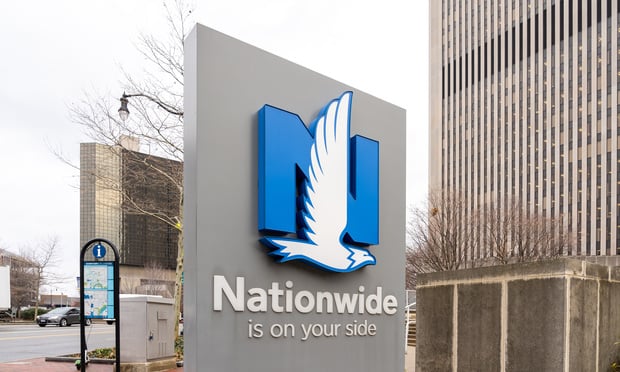NU Online News Service, Feb. 1, 3:45 p.m. EST
The Obama administration said it plans to fight a federal district court decision that found the health care reform law unconstitutional, while others maintain the ultimate decision will rest with the U.S. Supreme Court.
The ruling by Judge Roger Vinson, in Pensacola, Fla., has opened an avenue for 26 states to stop implementation of the Patient Protection and Affordable Care Act (PPACA).
The Obama administration said it will ask the 11th U.S. Circuit Court of Appeals, based in Atlanta, to stay the ruling.
"We are analyzing this opinion to determine what steps, if any—including seeking a stay—are necessary while the appeal is pending to continue our progress toward ensuring that Americans do not lose out on the important protections this law provides," Tracy Schmaler, a spokeswoman for the U.S. Justice Department, said in a statement.
And, in an Internet posting, Stephanie Cutter, a White House advisor, said, "The judge's decision contradicts decades of Supreme Court precedent that support the considered judgment of the democratically elected branches of government that the act's individual responsibility provision is necessary to prevent billions of dollars of cost-shifting every year by individuals without insurance who cannot pay for the health care they obtain."
Analysts at Washington Analysis said in a note to investors that they do not expect the lawsuits to reach the Supreme Court until late 2012, for the 2012-13 docket.
Ira Loss and Beth Mantz-Steindecker, the analysts, also said, "In the end, we give slight odds that the Supreme Court upholds the law's individual mandate as constitutional."
However, they cautioned, "If the Supreme Court were to render it unconstitutional, we still contend that the rest of health care reform would endure, unlike the ruling from Judge Roger Vinson, in Pensacola, Fla."
The analysts explained, "Under that scenario—where the individual mandate is found unconstitutional but the rest of the law stands—insurers, drug makers, providers, PBMs and distributors would suffer because they would fail to see the expected increased business from higher volumes, while some sectors would still be subject to the excise fees and reimbursement cuts required by the law."
Joel Wood, senior vice president for government affairs at the Council of Insurance Agents and Brokers, said the insurance agent industry's efforts "are aimed at legislative fixes to the [medical loss ratio] formula and other aspects of the law that gravely threaten the employer-provided group health insurance marketplace."
The agents want their commissions exempted from the MLR formula and also want a role ensured for them when the health exchange system goes into effect in 2014.
Mr. Wood added, "However, one aspect we do like in Judge Vinson's ruling, is that there is a complete linkage to the individual and employer mandates, and to insurance market reforms. Without a working mandate, the law's universal coverage aspirations will never be achieved, and adverse selection will make the private health insurance marketplace implode."
He said, "Pulling out the individual mandate isn't sufficient to correct the very significant defects of this law."
In comments before an insurance trade group, Sen. Ben Nelson, D-Neb., said the mandate that everyone buy health insurance in 2014 or pay a fine "is the biggest sticking point" in the health care reform law and one he will seek to change.
Sen. Nelson also called for repeal of the health care provision that requires businesses that make payments of $600 a year for goods or services to file a 1099 form.
Sen. Nelson told the gathering of members of the National Association of Insurance and Financial Advisors, "There's no doubt there needs to be reform of the reform," he said.
Commenting on the decision, Peter Marathas, a lawyer with Proskauer in Boston, said, "While the Obama Administration would like to cast Judge Vinson's decision as 'over-reaching', the reality is that his decision is thoughtful and well-considered."
He said, "In the end, the decision is less about health care than it is about federalism and states' rights."
But Mr. Marathas acknowledged that Judge Vinson's decision "is somewhat meaningless to business owners. It is but one decision on the way to the ultimate decision."
Want to continue reading?
Become a Free PropertyCasualty360 Digital Reader
Your access to unlimited PropertyCasualty360 content isn’t changing.
Once you are an ALM digital member, you’ll receive:
- Breaking insurance news and analysis, on-site and via our newsletters and custom alerts
- Weekly Insurance Speak podcast featuring exclusive interviews with industry leaders
- Educational webcasts, white papers, and ebooks from industry thought leaders
- Critical converage of the employee benefits and financial advisory markets on our other ALM sites, BenefitsPRO and ThinkAdvisor
Already have an account? Sign In Now
© 2025 ALM Global, LLC, All Rights Reserved. Request academic re-use from www.copyright.com. All other uses, submit a request to [email protected]. For more information visit Asset & Logo Licensing.








